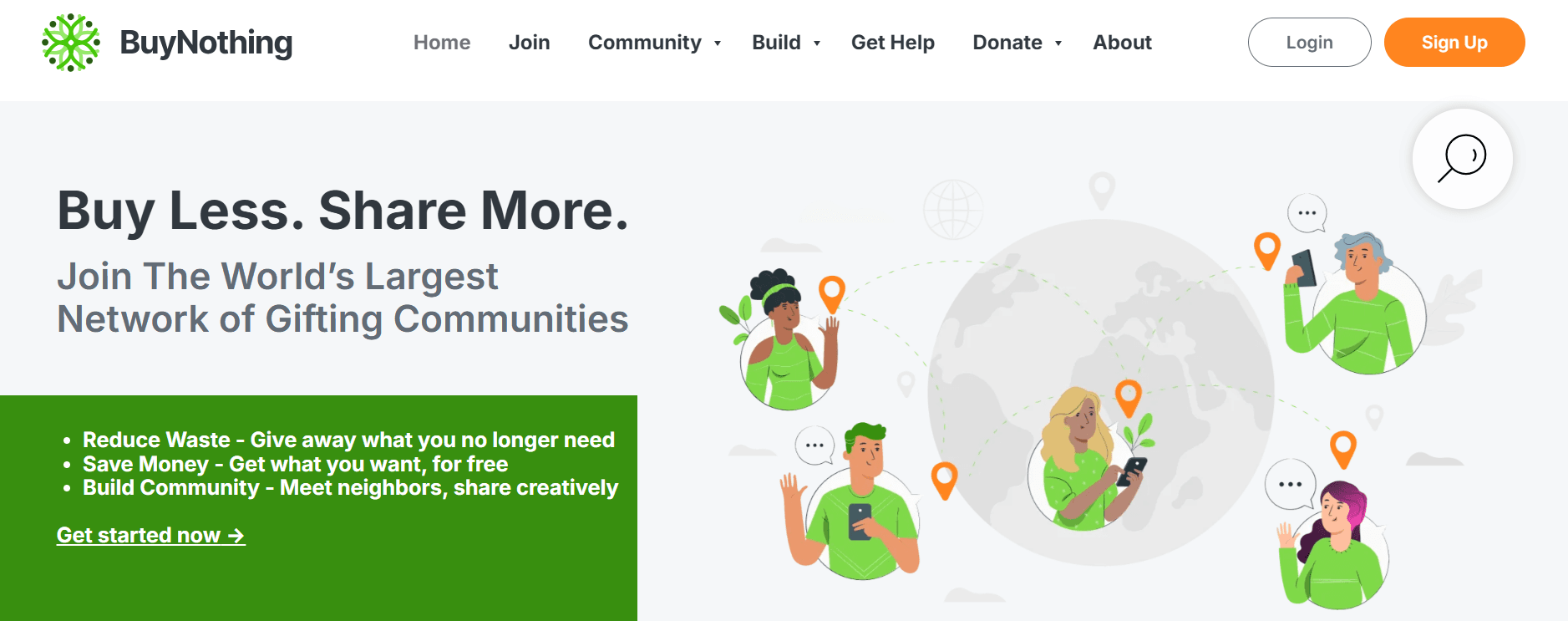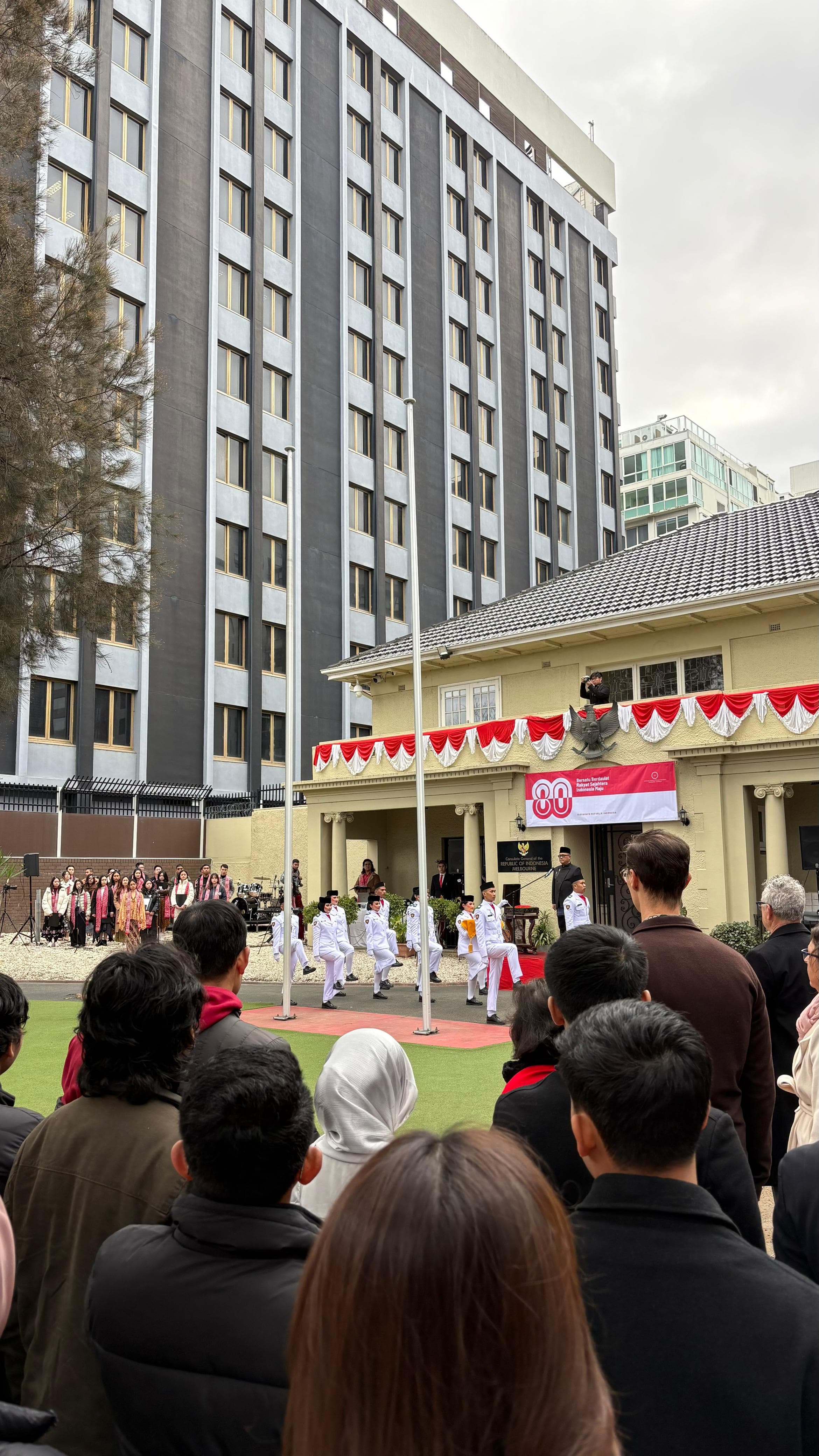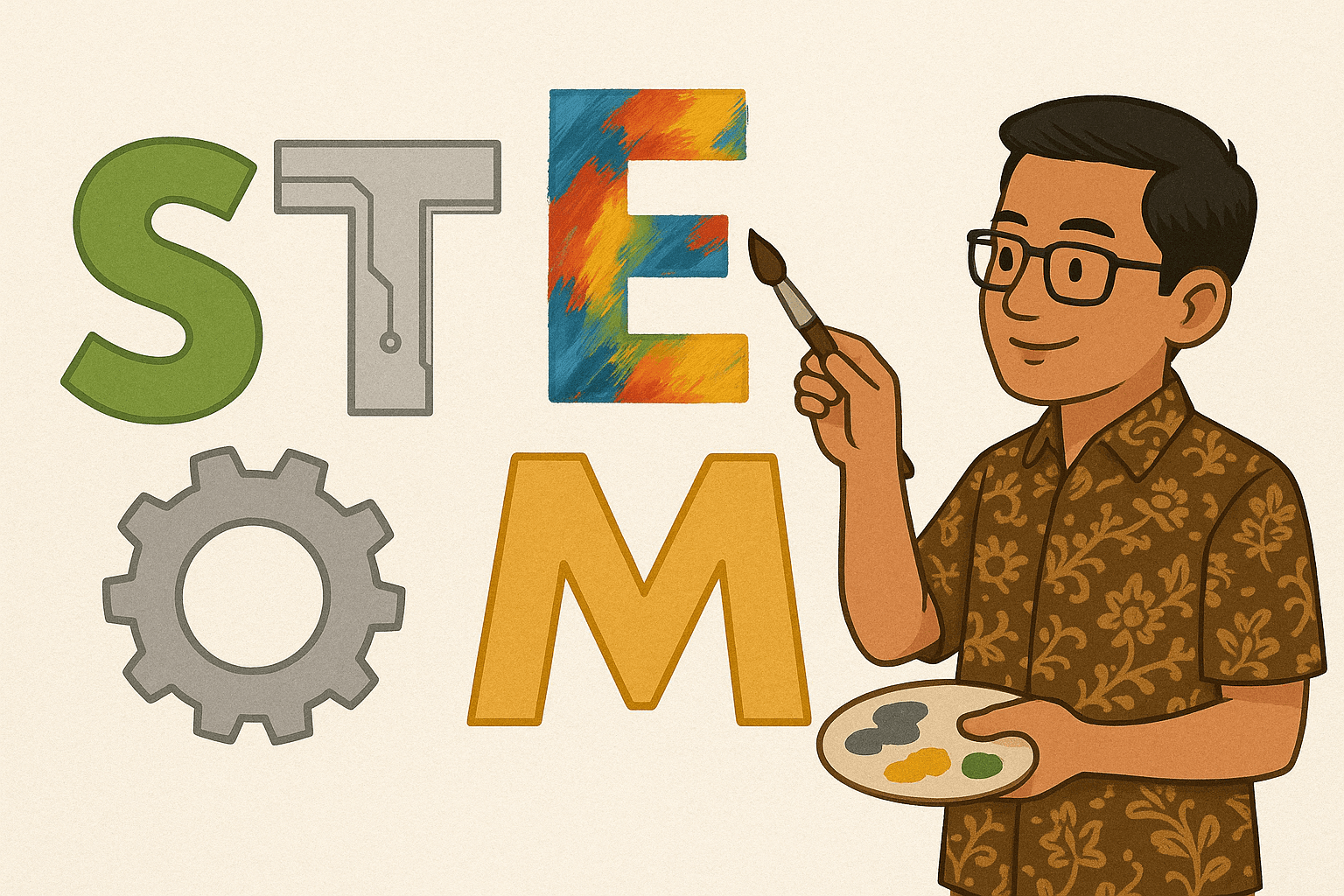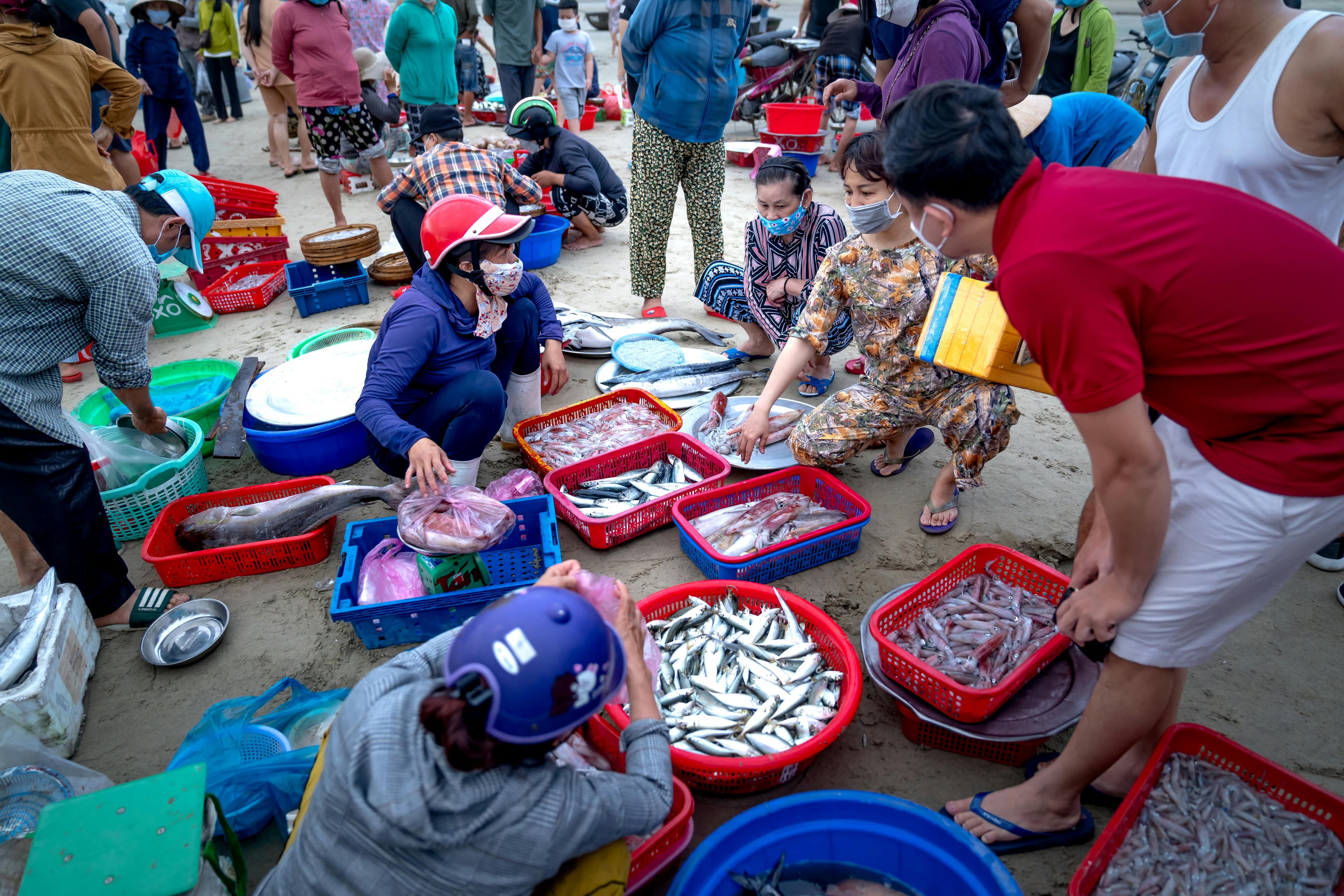
Geofragmentation and Energy Security: Policy Direction for Indonesia
Muhammad Irfan Islami
PhD in Economics at Arndt-Corden Department of Economics, ANU College of Law, Governance and Policy, Crawford School of Public Policy
Email: muhammad.islami@anu.edu.au
After decades of increased global economic integration, the world now faces the risk of Geoeconomic Fragmentation (GEF) driven by the placements of several policies (Aiyar et al., 2023). This phenomenon marks a potential structural shift in global order, which is not just a temporary disruption. Its main characteristics includes: an increase in protectionist tendencies in trade, a weakening or retreat of multilateral cooperation, and an increase in geopolitical tensions alongside competition between major countries. The drivers behind this fragmentation trend are multifaceted and complex - strategic competition between global powers, especially those involving the United States (US) and China, plays a central role. This competition can trigger a series of actions such as trade conflicts, the implementation of technological restrictions, and efforts to form more separate economic blocs (Gao, 2025). In addition, domestic political dynamics in many countries also make a significant contribution. The strengthening of nationalist and populist political currents has encouraged the government to adopt a more inward-looking policy. In addition, the economic insecurity felt by the public and concerns about the negative impact of the process of globalisation have also strengthened the push towards protectionist policies.
The manifestations of Geofragmentation are evident in various areas with the weakening of Multilateralism being one of the more prominent characteristics. The World Trade Organization (WTO), for example, faces serious challenges, especially the paralysis of the Appellate Body in its dispute resolution system since 2019 due to the US blockade (Gao, 2025). This paralysis effectively crippled the WTO's ability to enforce multilateral trade rules and resolve disputes between member states. Another example is the pressure on multilateral commitments on climate change issues, such as the US’s withdrawal from the Paris Agreement in the past and the challenges in meeting climate finance commitments (Arbar, 2025). Institutions such as the World Health Organization (WHO) have also come under pressure during the COVID-19 pandemic, characterised by politicisation, accusations of partisanship, and the emergence of vaccine nationalism that prioritises domestic interests over global solidarity (Luc, 2025). Rising geopolitical tensions, including armed conflicts and strategic rivalries, further exacerbate fragmentation by creating uncertainty, disrupting trade and investment flows, and encouraging countries to prioritise national security over economic cooperation (Rafitrandi et al., 2024).
Geofragmentation has a significant impact on various aspects of the global system, one of which is the global supply chain. Tariffs, export restrictions, sanctions, and overall geopolitical uncertainty increase production costs, cause shipping delays, and force companies to rethink their supply chain strategies (Aiyar et al., 2023). This has prompted the emergence of strategies such as supplier diversification, reshoring (moving production back to the country of origin), or friend-shoring (moving production to politically allied countries) to increase resilience (Mohandas et al., 2024). In addition, studies show that FDI is increasingly concentrated among geopolitically aligned countries, especially for investment in sectors that are considered strategic (International Monetary Fund, 2023).
Indonesia, as a country integrated in the global system with an open economy, can also be affected by Geofragmentation. This integration is realised through active participation in international trade, FDI receipts, and membership in various multilateral forums. A global economic slowdown, trade tensions, financial market volatility, and fluctuations in commodity prices can affect Indonesia's GDP, trade balance, exchange rate, and macroeconomic stability (World Bank, 2024). Indonesian industries are vulnerable to global supply chain disruptions, and global uncertainty can affect the investment climate as well as FDI flows to Indonesia, despite the government's ongoing efforts to improve it (Rafitrandi et al., 2024). Global integration, which was previously a motor of growth, now makes Indonesia sensitive to the negative impact of fragmentation.
Vulnerability and Dependence of Indonesia's Energy Sector in the Era of Geofragmentation
Indonesia's energy sector has inherent vulnerabilities that are exacerbated by Geofragmentation. Dependence on fossil energy imports, especially crude oil (75.72 million barrels in 2023) and LPG (around 45% of total needs), makes Indonesia very vulnerable to global energy price volatility and the risk of supply disruptions due to geopolitical events (Fikri, 2024). In addition, dependence on imported technologies, both for conventional energy and new and renewable energy (solar panels, wind turbines and batteries) (Tarumingkeng, 2025), creates vulnerability to global supply chain disruptions, price increases due to tariffs/trade wars, and geopolitical influences of supplier countries. Energy infrastructure spread across archipelagic countries is also vulnerable to natural disasters and cyberattacks (Tarumingkeng, 2025). Dependence on fossil fuels (fossil fuel lock-in), especially coal, makes it difficult for Indonesia to switch to other energy sources and risks losses because coal assets become unused (Giwangkara, 2021). Geofragmentation magnifies all these risks, making dependence on imports and technology much more dangerous, and will also have an impact on Indonesia's energy transition.
Accelerating the energy transition towards a cleaner and more sustainable system requires massive investments. Various studies and projections show the magnitude of the need for funding for Indonesia. The estimated need for energy transition financing in Indonesia varies, ranging from USD 1.177 trillion until 2060 for 587 GW of NRE according to ESDM/IESR (CASE for Southeast Asia, 2022), to USD 800 billion - 1.38 trillion in 2050 according to IESR/IRENA (IESR, 2023). Annual needs are estimated at USD 30-40 billion for the NZE 2060 target (IESR, 2023). This figure is in sharp contrast to the actual NRE investment, which is only around USD 1.5 - 1.6 billion per year (2021-2023) (Yustika, 2024). This large difference between needs and realisation shows that there is a very significant funding gap. This gap is one of the main obstacles to accelerating the energy transition, despite national ambitions and international partnerships.
Internal Challenges in Accelerating Energy Transition in Indonesia
The acceleration of Indonesia's energy transition is also hampered by internal factors. Policy and Regulation obstacles include inconsistencies, overlaps, fuel subsidies that create unbalanced competition (Tureah, 2025), NRE price regulations that were considered unbankable in the past (Simanjuntak, 2022), and legal uncertainty due to delays in finalising the NRE Bill and NRE purchase regulations (Paramita & Pranchiska, 2024). The lack of coherence between ministries (Paramita & Pranchiska, 2024) and TKDN requirements that are difficult to meet (Yustika, 2024) are also obstacles. In addition, there are also institutional challenges centered on PLN's dominant role. The NRE procurement process is considered irregular and transparent, while the monopoly position of the single buyer and PPA requirements (e.g., mandatory partner schemes and unbalanced risk sharing (Tureah, 2025) hinder private investment (Yustika, 2024). Infrastructure deficits, such as inadequate transmission networks (Tureah, 2025), and the need for investment in grid strengthening and energy storage (Colyer & Cory, 2024), are physical obstacles.
In addition to policy, regulation, and infrastructure obstacles, the energy transition in Indonesia is also hampered due to the country’s inability to maximise the potential of its natural resources. Data from the Directorate General of EBTKE to the Ministry of Energy and Mineral Resources shows that Indonesia has a huge potential for new and renewable energy, reaching thousands of gigawatts in total. However, its overall utilisation is still very low; only a small part of this massive potential has been developed. This gap is evident in various energy sources. For example, the most abundant solar energy potential is still minimally utilised, while the potential of marine energy has not even been utilised at all. Although some sources, such as hydro and geothermal, have relatively higher utilisation rates, the numbers are still far below their true potential. The low level of utilisation of renewable energy resource potential is a significant challenge in efforts to accelerate the national energy transition. To put this challenge in context, Indonesia’s technical base for new and renewable energy (NRE) is enormous—about 3,686 GW in total— dominated by solar (3,295 GW), with additional wind (155 GW), hydro (95 GW), ocean (60 GW), bioenergy (57 GW), and geothermal (24 GW). Yet actual deployment remains tiny at roughly 10.9 GW installed: hydro (6.4 GW) and geothermal (2.2 GW) make up the bulk of current capacity, bioenergy contributes 1.9 GW, while wind and solar are still in the hundreds of megawatts and ocean energy is essentially untapped. In other words, Indonesia has so far harnessed well under 0.3% of its mapped NRE potential—an extraordinary gap that underscores both the scale of the opportunity and the urgency of resolving the policy, infrastructure, and investment bottlenecks that keep projects from moving to steel-in-the-ground.
The Impact of Geofragmentation on Supply Chains and Renewable Energy Investment
Indonesia's efforts to accelerate the energy transition rely heavily on access to efficient and affordable NRE technology. However, dependence on imports for key components such as solar panels, inverters, batteries, and wind turbines (Setiyono, 2024) makes Indonesia's NRE sector vulnerable to global geofragmentation dynamics, especially technological competition and trade wars between the US and China. The impact of the US-China Trade/Technology War is very felt in the NRE sector, especially solar panels. Since 2018, the U.S. has imposed significant import tariffs on Chinese-made solar panels (Wijaya et al., 2022), which were then extended to Southeast Asian countries where Chinese manufacturers relocate their assemblies (Sef, 2025). This directly increases the cost of components for solar PV projects in Indonesia that import from these sources (Setiawan, 2025). This tariff war also creates significant supply chain uncertainty, making it difficult to predict prices, supply availability, and project planning in Indonesia (Sef, 2025). While global competition can lower costs, fragmentation and tariffs can neutralise or reverse this trend, making the energy transition more expensive and full of uncertainty for developers and financiers in Indonesia (Yustika, 2024).
This global geofragmentation also increases investor risk perceptions due to supply chain instability, trade policy uncertainty, potential conflicts, and market volatility (Rafitrandi et al., 2024). Geopolitical risks tend to hamper FDI (International Monetary Fund, 2023) flows, especially in strategic sectors such as NRE. However, domestic factors play a crucial role. Internal obstacles, including policy uncertainty, a complicated PLN procurement process, burdensome PPA requirements, limited infrastructure, and land/licensing issues, significantly exacerbate the risks faced by investors (Yustika, 2024). This combination of external and internal risks makes Indonesia's NRE investment climate less attractive than that of regional competitors, despite government efforts to improve it (Yustika, 2024). Improving the domestic investment climate is crucial for mitigating the negative impacts of geofragmentation and accelerating the energy transition in Indonesia.
Policy Recommendations
Indonesia is in a crucial condition in the energy transition journey, both in the context of global dynamics and urgent domestic needs. The challenges of global climate change demand a paradigm shift from dependence on fossil energy to clean and renewable energy sources. Internally, Indonesia is faced with the urgency to increase national energy security, reduce energy price volatility due to global market fluctuations, and utilise the abundant potential of renewable energy for the greatest possible prosperity of the people.
As emphasised in various analyses, the energy transition is not only about technological change, but also requires systemic transformation supported by a solid, innovative, and implementable policy framework. Failure to accelerate the energy transition risks putting Indonesia at a disadvantage in an increasingly sustainability-oriented global economic order, while increasing its vulnerability to climate and energy crises. Therefore, a comprehensive and measurable set of policy recommendations is absolutely necessary. The recommendations outlined in this report aim to provide strategic guidance that can be implemented, focusing on two main pillars: strengthening domestic funding to support the energy transition (DTE) and maximising the use of local renewable energy (NRE). These two pillars are believed to be the essential foundations for realising a clean, sustainable, fair, and resilient national energy system.
1. Increased Domestic Funding for Energy Transition Support (DTE)
The transition to sustainable energy requires massive financial investment. Reliance on external funding sources often comes with a variety of requirements and agendas that may not be fully aligned with national development priorities. Therefore, optimising all potential funding from within the country is a strategic obligation to ensure the sovereignty and sustainability of Indonesia's energy transition program.
1.a. Optimising All Domestic Funding Sources for the Energy Transition
Domestic Funding is not only about reducing dependence, but also about building fiscal and financial independence in the energy transition agenda. This strategy should include mobilising public funds through a more targeted State Budget and Regional Budget, as well as more aggressive involvement of the domestic private sector through various innovative and attractive investment instruments.
The latest analysis shows that there is a substantial financing gap in Indonesia's energy transition efforts. Annual funding needs to achieve the decarbonization target by 2050 are estimated to range from USD 20 billion to USD 40 billion (Anis & Maswan, 2024). Another estimate states that an investment of USD 20 billion to USD 25 billion per year until 2030 is needed to achieve the target of 100% NRE by 2050 (IESR, 2022). The Institute for Essential Services Reform (IESR) also highlighted a potential shortfall of USD 20 billion.
However, the realisation of investment in the new and renewable energy (NRE) sector is still far from the target. In 2023, NRE investment will only reach USD 1.47 billion, even below the Ministry of Energy and Mineral Resources (EMR) target of USD 1.8 billion for the same year (Anis & Maswan, 2024). This reflects various structural obstacles and a lack of investment attractiveness in Indonesia's NRE sector. The repeated failure to achieve the annual investment target (Anis & Maswan, 2024), shows that the root of the problem lies in domestic aspects such as regulatory uncertainty, bureaucratic complexity, lack of financially ready (bankable) projects, and challenges in project implementation in the field (Anis & Maswan, 2024).
1.b. Fiscal Policy Adjustments for Increased State Revenue Allocated to DTE
One of the strategic steps to increase domestic funding is through fiscal policy adjustments, especially those related to the extractive sector. State revenues from this sector, such as royalties and taxes on mineral and coal exports (Minerba), can be a significant source of funding for DTE if managed appropriately. The government has taken the first step by increasing the mineral and mineral royalty rate through Government Regulations Number 18 and 19 of 2025. This policy is seen as an important momentum to accelerate the energy transition, with the hope that the additional funds raised can be allocated to support the achievement of the national green energy target (Pulungan, 2025).
To strengthen domestic funding in the face of the challenges of the energy transition, it is recommended to increase the levy on coal production through a more progressive royalty scheme. Scenario analysis based on historical data (2019-2023) from several coal companies in Indonesia shows the potential for very significant additional state revenue. For example in 2022, a year with high coal prices, an increase in royalty rates from an average of 10.5%-12.5% to a progressive scheme of up to 20-30% has the potential to generate additional state revenue of more than USD 25 billion in one year[1]. The substantial funds obtained from the optimisation of these royalties can be allocated specifically for investment in renewable energy projects, the development of green technologies, as well as equitable transition programs for the affected regions and workforce. In addition to royalty optimisation, another fiscal instrument that has great potential is the imposition of export taxes on strategic commodities. A number of economists and policy analysts have voiced that the government can apply export taxes/tariffs on nickel products, as an alternative to increase state revenue, where export tariffs of 10% to 20% can provide income to the country of up to 100 trillion rupiah (Aswara, 2025).
1.c. Accelerating the Development of Domestic Green Investment Instruments and Foreign Direct Investment (FDI) Withdrawals
In addition to optimising state revenue, the mobilisation of private funds, both domestic and foreign, plays a central role in financing the energy transition. For this reason, it is necessary to accelerate the development of green investment instruments in the domestic market, as well as proactive efforts to attract foreign direct investment (FDI), focusing on the renewable energy sector.
Concrete steps need to be taken to accelerate the development and issuance of instruments such as green bonds, green sukuk, and green loans by various domestic entities, including the government, state-owned enterprises, and private corporations. The global green bond market has shown very rapid growth and is an important source of funding for sustainable projects (Climate Bonds Initiative, 2022). Several countries and development finance institutions have successfully leveraged this instrument. For example, the African Development Bank (AfDB) launched the "Green Bond Program", which funds large-scale NRE initiatives in Africa, and South Africa has also successfully issued green bonds for renewable energy and climate resilience projects (Financing Africa's Energy Transition: Innovative Models and Partnerships, 2025).
However, the domestic green bond market in Indonesia is still considered less attractive to investors so far. Some of the factors causing this include uncertainty related to fiscal and non-fiscal incentives for issuers and investors, Indonesia's relatively new green taxonomic status - which has not been fully internalised by the market - and the limited availability of NRE projects that are considered bankable or financially viable (IESR, 2022). Learning from the experience of Thailand, which has managed to record exponential growth in sustainable bond issuance (reaching USD 8.4 billion as of October 2021), the key to its success lies in the creation of an enabling environment, including the existence of a credible local review body and a transparent Environmental, Social and Governance (ESG) information platform (Climate Bonds Initiative, 2022).
In line with the development of domestic green investment instruments, active efforts to attract FDI that specifically target NRE and sustainable projects should also be increased. This entails a more targeted investment promotion strategy, simplification of licensing and investment procedures, and the provision of competitive and attractive incentives for global investors. The key to attracting investment, both domestic and foreign, is the availability of bankable projects, the existence of regulatory and legal certainty, transparency in business processes, and a commitment to high environmental and social protection standards (Anis & Maswan, 2024).
2. Maximizing the Utilization of Local Renewable Energy (NRE)
Indonesia is awarded an extraordinarily abundant renewable energy potential, ranging from solar, geothermal, hydro, to biomass and marine potential. Despite that, the utilisation of this potential is still far from optimal. Maximising local NRE is not only an option but a strategic imperative to achieve national energy security, reduce greenhouse gas emissions, and encourage sustainable economic development.
2.a. Optimising the Potential of Local NRE as the Key to Energy Security
Data on Indonesia's NRE potential shows fantastic numbers, but the realisation of its utilisation is still very minimal. The potential of solar energy, for example, is huge. The Ministry of Energy and Mineral Resources recorded a technical potential of 207,898 MW, while IESR even mentioned a much greater technical potential, reaching 7,714.6 GW or around 3.4 TW when combined with wind energy potential (Renewable Energy Potential in Indonesia, 2025). The Ministry of Energy and Mineral Resources itself projects that the installed capacity of solar energy can reach 420 GW by 2060 (Aditya et al., 2025). However, until the end of 2023, the installed capacity of solar PV had only reached 573.8 MW (Renewable Energy Data, 2024). Although PLN plans to increase solar capacity by 4.68 GW by 2030 (Aditya et al., 2025) and the latest RUPTL target is to launch an additional 17 GW in the next decade (Indonesia Targets 35% Renewable Energy Led by Solar, Hydro, Geothermal, 2025), this figure is still very small compared to its potential.
For geothermal energy, Indonesia is known to have the greatest potential in the world (IESR, 2024). However, the installed capacity at the end of 2023 will only reach 2,417.7 MW (Renewable Energy Data, 2024), with a target of adding 5 GW in the new RUPTL in the next decade (Indonesia Targets 35% Renewable Energy Led by Solar, Hydro, Geothermal, 2025). Similarly, hydro energy, where ESDM recorded the hydro potential of the dam at 95,003 MW and IESR mentioned the potential of PLTMH of 28.1 GW (Renewable Energy Potential in Indonesia, 2025). The realisation of installed hydropower capacity until the end of 2023 is 6,784.2 MW (Renewable Energy Data, 2024), with a plan to add 16 GW in the new RUPTL (Indonesia Targets 35% Renewable Energy Led by Solar, Hydro, Geothermal, 2025). This wide gap between potential and realisation is an indication of systemic underperformance in the planning and execution of national energy policies. This means that Indonesia bears a huge opportunity cost, not only in terms of achieving emissions targets and energy security, but also in the form of potential savings in the country's foreign exchange (from reducing fossil fuel imports), creating green jobs, and various other environmental benefits.
Maximising the utilisation of local NRE potential is a fundamental strategy to reduce dependence on fossil energy, both imported and domestic, whose prices often fluctuate and burden the state budget. Increasing the share of NRE in the national energy mix will directly improve energy security, help Indonesia achieve its Nationally Determined Contribution (NDC) targets within the framework of the Paris Agreement, and encourage more inclusive and sustainable green economic growth.
2.b. Strategic Steps to Overcome Domestic Barriers to NRE Utilisation
To unlock the potential of local NRE, a series of strategic steps is needed to overcome various domestic obstacles that have been the main obstacles. These obstacles include aspects of licensing, network infrastructure readiness, and pricing policies that are less attractive to developers.
First, simplifying licensing is an urgent priority. The long, convoluted, and expensive licensing process has long been the main complaint of NRE developers. A survey conducted by IESR showed that 75% of NRE developers stated that the licensing procedure took a very long time, which had an impact on the delay in project completion schedules, increased transaction costs, and investor doubts about the rate of return on investment (IESR, 2022). Therefore, significant bureaucratic reform is absolutely necessary to cut the time and cost of licensing NRE projects. The establishment of an efficient, transparent, and integrated one-stop service between relevant ministries/institutions can be an effective solution. The government is also encouraged to proactively simplify the entire licensing process related to NRE development.
Second, the preparation of an adequate network infrastructure. Existing electricity transmission and distribution networks are often not sufficient to accommodate the supply of electricity from renewable sources that are variable (such as solar and wind) and intermittent. The national electricity system is currently considered not ready for large-scale penetration of Variable Renewable Energy (VRE) due to several factors, including the condition of excess electricity supply in several regions (especially from coal-fired power plants), the dominance of coal-fired power plants with high minimum off-take obligations, and the system's high reserve margin requirements (IESR, 2022). Therefore, major investments in modernisation and expansion of transmission and distribution networks are becoming crucial. PLN, as the main operator of the national electricity system, needs to improve the quality of network planning, expand network coverage to potential NRE areas, and reform procurement mechanisms to support optimal NRE integration.
Third, an attractive and fair NRE price policy. The policy of purchasing electricity from NRE plants is a determining factor for investment interest in this sector. One of the reasons for the stagnant NRE investment so far is the lack of improvement in the investment support environment, inconsistent implementation of policies and regulatory frameworks, delays in the procurement process by PLN, and protracted negotiations of Electricity Sale and Purchase Agreements (PJBL/PPA) (IESR, 2022). The issue of electricity purchase prices is also one of the main challenges in the development of geothermal energy (Dwi, 2024). The price policy must be able to provide certainty and an attractive rate of return on investment for developers, but still consider the affordability of tariffs for consumers and PLN's financial health.
In addition to these three general aspects, special attention is also needed to address specific challenges in each NRE sub-sector. For geothermal, for example, comprehensive efforts are needed to improve the investment climate, resolve issues related to electricity prices, business agreement schemes, access to funding, improve regulations, and develop downstream markets for the direct use of geothermal (Dwi, 2024). Another significant challenge in geothermal development is the amount of initial investment required and the high risk at the exploration stage, where the success rate of exploration wells often only ranges from 30-40% (Dwi, 2024).
These various obstacles are closely interrelated. The protracted licensing process will automatically drive up the cost of developing the project, which in turn will demand a higher selling price for electricity to keep the project economically viable. On the other hand, an unready power grid will limit the capacity that can be integrated into the system, even if the prices offered are attractive and the licensing process has been simplified. Therefore, a partial or sectoral approach will not be effective. A coordinated approach is needed and involves cooperation across relevant ministries, institutions, and SOEs.
2.c. Encouraging Research, Development, and Adaptation of NRE Technology According to Indonesian Conditions
In addition to overcoming regulatory and infrastructure barriers, efforts to maximise the use of local NRE must also be supported with strengthening research, development (R&D) capacity, and adaptation of NRE technology in accordance with Indonesian conditions. Indonesia has a wealth of diverse NRE resources, but most of them have not been utilised optimally, one of which is due to the limitations of technology that is suitable or commercially mature for local conditions.
Investment in R&D and technology adaptation is crucial to ensure that renewable energy technologies adopted from abroad can operate effectively and efficiently in the context of Indonesia's geographical, climate, availability of specific natural resources, and technical capacity. PLN itself has recorded a positive performance in NRE development in 2023 and is committed to continuing to optimise every potential (Syofiadi, 2024), but the push for more targeted and adaptive R&D needs to be improved.
Some specific R&D areas that need to be prioritised include but are not limited to:
· The development of energy storage systems such as batteries that are efficient, reliable, and affordable, is necessary to overcome the intermittent nature of solar and wind energy, thereby improving the reliability of the electricity supply from VRE.
· Research on the use of local materials for the production of NRE components. For example, the use of local silica sand for the manufacture of solar cells. This not only aims to reduce dependence on imported components but also to increase the added value of TKDN competitively, not just to meet administrative requirements.
· Adaptation and development of solar PV technology suitable for maritime and archipelagic conditions, including the optimisation of Floating Solar Power Plant technology, which has considerable potential in Indonesia, given the large number of lakes and reservoirs.
· Development of smart grid technology at various scales, ranging from small-scale for remote communities to large-scale for regional interconnection systems, to optimise the integration of various renewable energy sources and improve system efficiency.
· Further research for the sustainable use of biomass and bioenergy, including the development of more efficient and environmentally friendly conversion technologies, as well as ensuring the sustainability of raw material supply.
Bibliography
Aditya, I. A., Wijayanto, T., & Hakam, D. F. (2025). Advancing Renewable Energy in Indonesia: A Comprehensive Analysis of Challenges, Opportunities, and Strategic Solutions. In Sustainability (Vol. 17, Issue 5). https://doi.org/10.3390/su17052216
Aiyar, S., Ilyina, A., Chen, J., Kangur, A., Trevino, J., Ebeke, C., Gudmundsson, T., Soderberg, G., Schulze, T., Kunaratskul, T., Ruta, M., Garcia-Saltos, R., & Rodriguez, S. (2023). Geo-Economic Fragmentation and the Future of Multilateralism. Staff Discussion Note SDN/2023/001. In International Monetary Fund (Issue 001). https://www.imf.org/en/Publications/Staff-Discussion-Notes/Issues/2023/01/11/Geo-Economic-Fragmentation-and-the-Future-of-Multilateralism-527266
Anis, M. A., & Maswan, P. (2024). Public Finance on Indonesia’s Energy Transition: Implementation Assessment. https://www.climate-transparency.org/wp-content/uploads/2024/11/Public-Finance-on-Indonesia-Energy-Transition-Implementation-Assessment.pdf
Arbar, T. F. (2025, January 21). Knock! Trump Takes the United States Out of the Paris Climate Agreement. CNBC Indonesia. https://www.cnbcindonesia.com/news/20250121105013-4-604771/tok-trump-bawa-amerika-serikat-keluar-dari-perjanjian-iklim-paris
Aswara, D. (2025). State Revenue Can Increase from Coal and Nickel Export Levy rather than Increasing VAT to 12 Percent. Tempo.Co. https://www.tempo.co/ekonomi/penerimaan-negara-bisa-bertambah-dari-pungutan-ekspor-batu-bara-dan-nikel-daripada-naikkan-ppn-jadi-12-persen-1189064
CASE for Southeast Asia. (2022). G20 Presidency: Funding for energy transition infrastructure through the 'policy derisking' instrument must be prioritized.
Climate Bonds Initiative. (2022). Green Infrastructure Investment Opportunities THAILAND: 2021 REPORT. In Climate Bonds Initiative. https://www.greenfinancelac.org/
Colyer, T., & Cory, S. (2024). Investing in Indonesia’s Energy Transition. Oliver Wyman. https://www.oliverwyman.com/our-expertise/insights/2024/oct/investing-in-indonesia-energy-transition.html%0A%0A%0A%0Akalau ini?
Renewable Energy Data. (2024). Renewable Energy Indonesia. https://renewableenergy.id/data-energi-terbarukan/
Dwi, A. (2024). A Series of Opportunities and Challenges for Geothermal Energy in Indonesia, What Are They? Listrikindonesia.Com. https://listrikindonesia.com/detail/14976/deretan-peluang-dan-tantangan-energi-panas-bumi-di-indonesia-apa-saja
Fikri, M. D. Al. (2024, December 2). The Direction of Indonesia's Energy Independence in the Midst of Global Conflicts and Climate Crises. CNBC Indonesia. https://www.cnbcindonesia.com/opini/20241202121507-14-592626/arah-kemandirian-energi-ri-di-tengah-konflik-global-dan-krisis-iklim
Financing Africa’s Energy Transition: Innovative Models and Partnerships. (2025). CLG Global. https://clgglobal.com/financing-africas-energy-transition-innovative-models-and-partnerships/
Gao, H. (2025). Four things to watch in global trade policy in 2025. Hinrich Foundation. https://www.hinrichfoundation.com/research/article/trade-policy/four-things-to-watch-in-global-trade-policy-in-2025/
Giwangkara, J. (2021). The Urgency of Renewable Energy Transition in Indonesia. In Kaukus Ekonomi Hijau.
IESR. (2023). Indonesia Energy Transition Outlook 2024: Peaking Indonesia’s Energy Sector Emission by 2030: The Beginning or The End of Energy Transition Promise. In Indonesia Energy Transition Outlook 2024: Vol. 4:2024. www.iesr.or.id
Indonesia targets 35% renewable energy led by solar, hydro, geothermal. (2025). RECCESSARY. https://www.reccessary.com/en/news/id-regulation/indonesia-targets-35-percent-renewable-energy
Institute for Essential Services Reform (IESR). (2022). Indonesia Energy Transition Outlook 2023: Tracking Progress of Energy Transition in Indonesia: Pursuing Energy Security in the Time of Transition. In Essential Concepts of Global Environmental Governance (Vol. 3). https://iesr.or.id/wp-content/uploads/2024/03/Indonesia-Energy-Transition-Outlook-2023.pdf
Institute for Essential Services Reform (IESR). (2024). Indonesia Energy Transition Outlook 2025: Navigating Indonesia’s Energy Transition at the Crossroads: A Pivotal Moment for Redefining the Future. In Essential Concepts of Global Environmental Governance (Vol. 5).
International Monetary Fund. (2023). World Economic Outlook: A Rocky Recovery. In International Monetary Fund.
Luc. (2025, January 21). Trump Signs Executive Order, United States Leaves WHO. CNBC Indonesia. https://www.cnbcindonesia.com/news/20250121094545-4-604738/trump-teken-perintah-eksekutif-amerika-serikat-keluar-dari-who
Mohandas, S., Gautam, A., Petersen, C., Nzewi, T., & Bailey, R. (2024). The Geopolitics of Supply Chains (Issue August).
Paramita, R., & Pranchiska, I. (2024). Indonesia's energy mix target in 2023 has again missed. State Budget Bulletin, IX(3), 3–7. www.pa3kn.dpr.go.id
Renewable Energy Potential in Indonesia. (2025). Renewable Energy Indonesia. https://renewableenergy.id/potensi-energi-terbarukan-di-indonesia/
Pulungan, M. A. (2025). Increase in Mineral and Mineral Royalties Drives Energy Transition. KabarBursa.Com. https://kabarbursa.com/ekonomi-hijau/125698/kenaikan-royalti-minerba-pacu-transisi-energi
Rafitrandi, D., Hirawan, F. B., Dzakwan, M. H. A., Atje, R., Siregar, R. N., Widiyadi, V. A., Daulay, N., Pramudyantini, E. Q., & Octauno, E. L. (2024). Indonesia Sustainable Trade and Investment Report 2024: Prospects and Challenges of Sustainable Economy Amidst Global Dynamics.
Sef. (2025, April 11). The U.S. and China "Kill Each Other" Attack Crazy Tariffs, What Is the Impact on the World? CNBC Indonesia. https://www.cnbcindonesia.com/news/20250411132304-4-625236/as-china-saling-bunuh-serang-tarif-gila-gilaan-apa-dampak-ke-dunia
Setiawan, F. W. (2025, April 23). 3,500% U.S. Solar Panel Tariff Rocks Southeast Asia! What is Indonesia's strategy? Compassion. https://www.kompasiana.com/feddyws11/680879b7ed6415409061a9f2/tarif-impor-panel-surya-as-hingga-3-500-ancaman-peluang-dan-strategi-global-energi-terbarukan
Setiyono, S. (2024). INCREASING THE USE OF NEW AND RENEWABLE ENERGY (NRE) TO REALIZE GREEN ECONOMIC RESILIENCE IN INDONESIA.
Simanjuntak, U. (2022). Looking at the Energy Transition Strategy of the Government of Indonesia in 2022. IESR. https://iesr.or.id/menilik-strategi-transisi-energi-pemerintah-indonesia-di-tahun-2022/
Syofiadi, R. (2024). NRE Development Grows Positively in 2023, PLN Records Sustainable Performance. PT PLN (Persero). https://web.pln.co.id/cms/media/siaran-pers/2024/06/pengembangan-ebt-tumbuh-positif-di-2023-pln-catatkan-kinerja-yang-berkelanjutan/
Tarumingkeng, R. C. (2025). Energy Geopolitics in Indonesia: Natural Resources, Energy Security and Impact on Domestic Politics. RUDYCT e-PRESS.
Tureah, G. (2025). The Country of Perpetual Potential: Indonesia’s Barriers in Renewable Energy Transition. Chicago Policy Review. https://chicagopolicyreview.org/2025/02/06/the-country-of-perpetual-potential-indonesias-barriers-in-renewable-energy-transition/
Wijaya, L. I., Zunairoh, Z., Eriandani, R., & Narsa, I. M. (2022). Financial immunity of companies from Indonesian and Shanghai stock exchange during the US-China trade war. Heliyon, 8(2). https://doi.org/10.1016/j.heliyon.2022.e08832
World Bank. (2024). Indonesia Economic Prospects: Funding Indonesia’s Vision 2045 (Issue December).
Yustika, M. (2024). Unlocking Indonesia’s Renewable Energy Investment Potential: Challenges and opportunities for accelerating investment in solar and wind power.
Written by Directorate of Public Relation and Alumni Network (11/11/2025)






